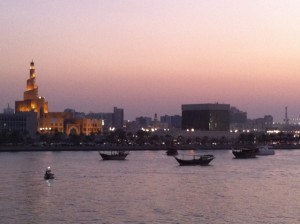Of Jeter, Jagger, Richards and Dylan
Posted on December 7th, 2010 in Uncategorized | 6 Comments »
Someone asked me below what I thought of the negotiations between the Yankees and Derek Jeter, which are now finished. Jeter got three years for $51 million, and the Yankees are now looking at signing pitcher Cliff Lee. (I wish they wouldn’t: a six-year contract for a 32-year-old pitcher who, per Randy Johnson and many others, may not make the transition to pitching in New York? Nuts.)
Like any good Yankee fan, I stand by Derek Jeter. But I’m ambivalent about this deal. Part of me wishes that he’d recognize he’s just not a great shortstop any more and settle for, say, the paltry $15 million a year the Yankees first offered. And part of me admires Jeter’s competitiveness and his sense that he should get paid what the market will bear. Yet another part wonders how the Yankees will fare with a 38-, 39- and 40-year-old shortstop.
It returns to this theme of men and ambition, which has been cropping up in my cultural life lately.
As you know, I’ve been reading Keith Richards’ book, Life, and finally finished it. By the end, I liked it—and Richards— less than I had in its first couple of hundred pages. Appropriately for someone who mocks the penis size of his “friend” Mick Jagger, referencing Jagger’s “tiny todger,” Richards comes off as kind of a dick. There are some things men do not do to each other; mocking a friend’s equipment in a worldwide bestseller is one of them.
You won’t find this perspective in any of the ravishing reviews of the book, certainly not Liz Phair’s idiotic hero worship drool published in the Times. It’s easier to laud Richards’ rebel cool; he’s the bad boy in high school whom no one wants to call out. But what is cool, really? What values underlie it?
Richards comes off as a tepid father—he talks of taking his 7-year-old son on tour with him, giving the boy the responsibility of waking Richards from drug-induced sleep in order to perform, and he’s famously away on the road when his two-month-old, whom he’s barely seen, dies.
He’s certainly not much of a boyfriend, despite his protestations that he never chased women. (They chase him.) He cuckolds his bandmates on several occasions. (There’s no sign that they returned the favor.) He’s brutal on Jagger in more than just the one way.
(Jagger responds in last week’s New York Times “T” magazine, saying, “Personally, I think it’s really quite tedious raking over the past. Mostly people do it for the money.” Which unconvinces, because Mick Jagger has never taken offense at money.)
As Richards describes his years of horrific drug abuse, it’s hard not to have sympathy for Jagger; anyone who’s ever been in a relationship with an addict, any kind of relationship and any kind of addict, knows just how difficult that is, and if Jagger became obsessed with control, which it sounds like he did, when your bandmate is on heroin for a decade or so, wouldn’t you?
Richards has a frustrating inability to talk interestingly about the music he makes has made. It is, of course, more important that he make it than that he can write about making it. But still…somehow the way Richards describes the songwriting process, you wind up feeling that, well, one should have just listened to Exile on Main Street again. Not Keef’s fault, but that’s where the magic lies.
Also—no one gives a damn about the X-pensive Vinos. (You can get their greatest hits for six bucks on Amazon.) Maybe we should. But I doubt it.
Perhaps most frustrating is that Richards, who’s so insightful and interesting about his childhood and the Stones’ early years, doesn’t address the band’s long decline. When did the Stones last make music that one had to hear? With Tattoo You, released (yikes) 30 years ago. Jagger and Richards were both about 37 at the time—Derek Jeter’s age now. What happened? Is it true, as Coldplay’s Chris Martin says in the new issue of Q magazine, that “you have to have done your best work” by your late 30s? Or is that just a romantic artistic myth?
Of course, there’s plenty of evidence to the contrary—look at U2, or Bob Dylan, who have made vital music well past their 30s. Each case is different; there’s no knowing—just as there’s no knowing when to hang it up. In the Wall Street Journal the other day, John Jurgensen argued that Dylan has come to suck so badly, he should quit playing live. (Judging from the one time I saw Dylan, in 1986, that has been arguable for some time.)
This issue is coming to the fore now that a generation of performers is hitting old age, along with their baby-boomer fans. Not unlike their R&B predecessors, such as the still-touring Four Tops, most classic rock acts are delivering note-for-note nostalgia, but on a bigger scale. Pink Floyd’s Roger Waters scored one of the most successful tours of the year by rolling out “The Wall,” updating only the 1980 stage technology. But for the handful of acts releasing new material and trying to stay relevant as artists, there’s no late-career blueprint.
(Speaking of not knowing when to walk away, I could digress into an anti-Charlie Rangel riff here, but I won’t. Or talk about the patho-tragic fall of John McCain, who should have realized that sticking to whatever principles he may have had was a better cap to his career than winning at the cost of everything he once stood for.)
(I could also point out a gracious example of walking away: sportswriterMichael Wilbon, writing his last column for the Washington Post, saying,
Everything I have now professionally I owe to The Washington Post…
Certain young sportswriters in Boston, who plead for us to sympathize with their gender political plight, take note.)
These are not easy questions (and they are, of course, hardly limited to men). Which is a banal thought. But here are two that, I hope, are not.
One: What fascinates and sometimes inspires is the struggle of every individual to resolve the tension between creativity/living and aging/dying in his or her own life. That never gets old.
(Consider, for example, the difference between how Christopher Hitchens is navigating the imminent end of his life with startling candor—”It’s no fun,” Hitchens writes, “to appreciate to the full the truth of the materialist proposition that I don’t have a body, I am a body“—and how Michael Douglas is approaching his death, appearing on the cover of People with the mantra, “I’ll beat this.” Musician Phil Collins, meanwhile, plagued with nerve problems that prevent him from playing drums or, more fundamentally, cleaning himself, tells Rolling Stone that he’s considering suicide.)
Here’s the second thought, then: As Baby Boomers retire, and because of extensions in longevity, we’re going to be seeing these issues addressed more than ever, and resolved, I believe, in ways that make life more meaningful for those of us who aren’t there yet.


